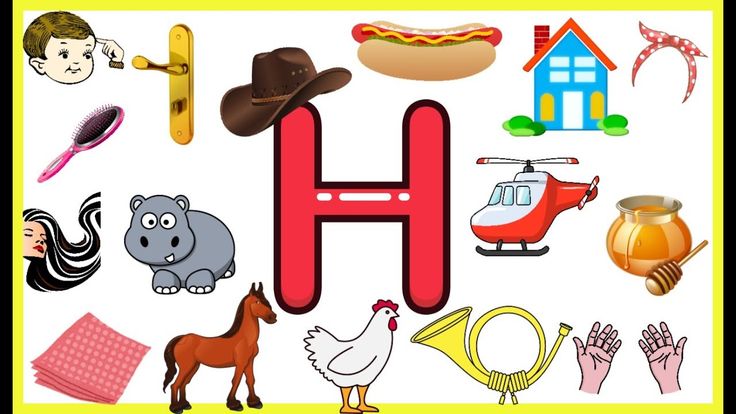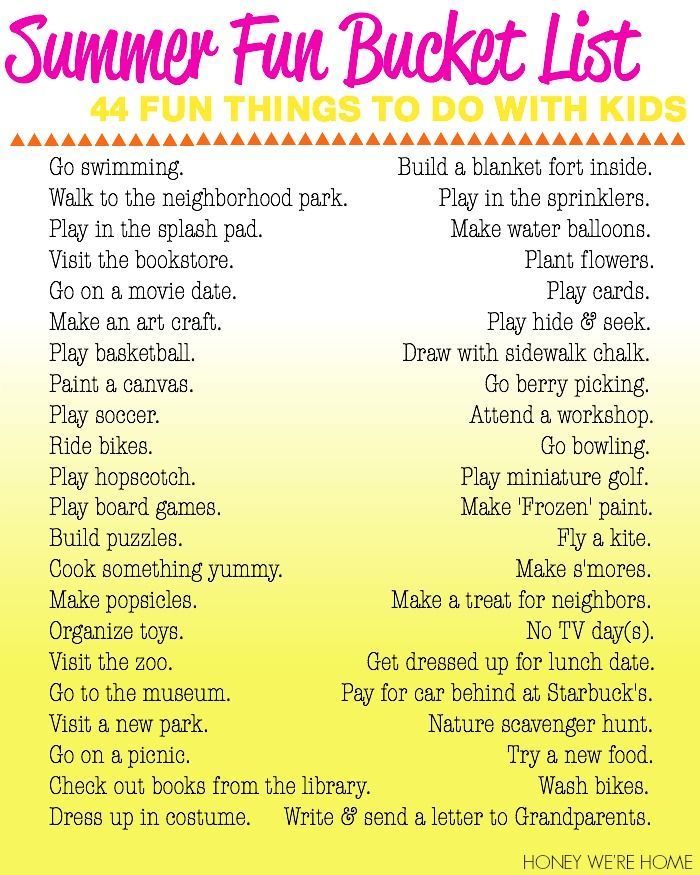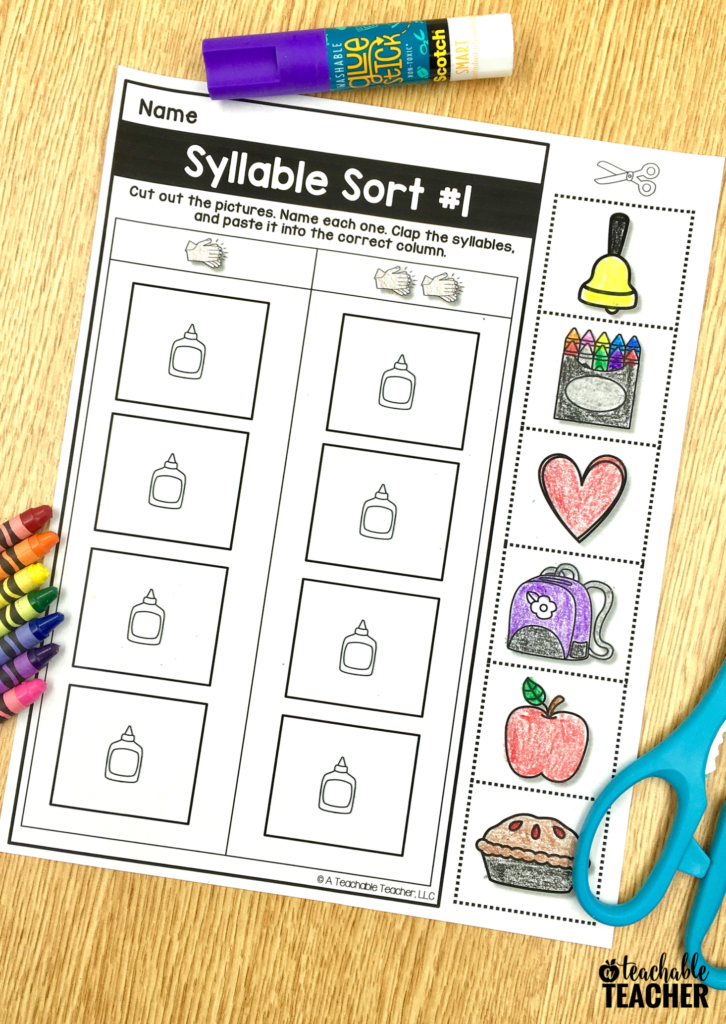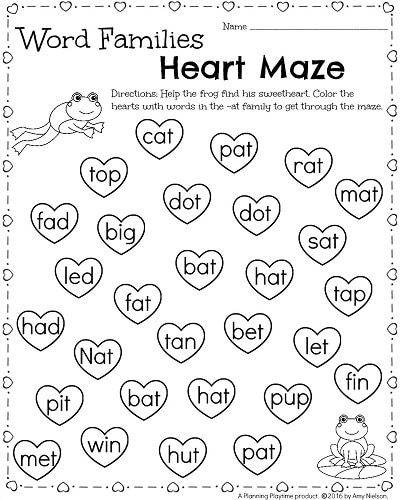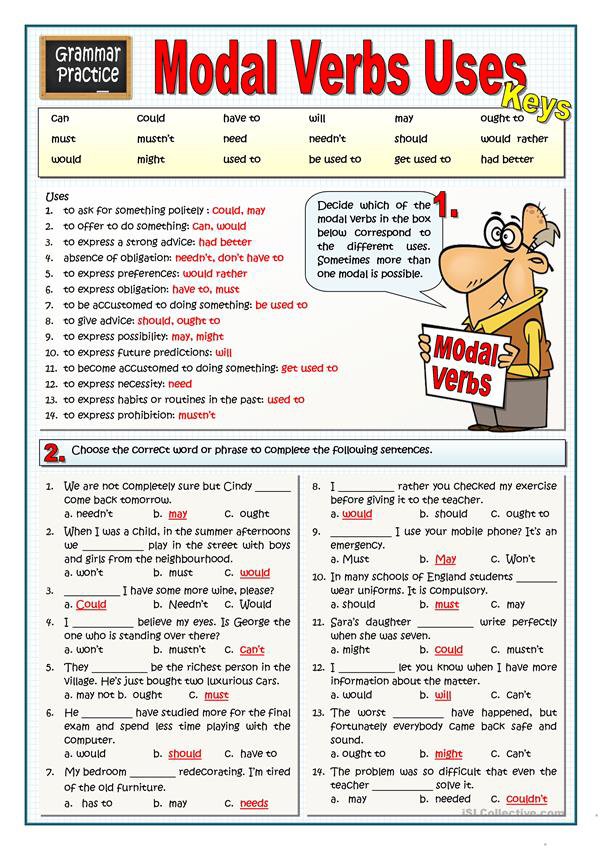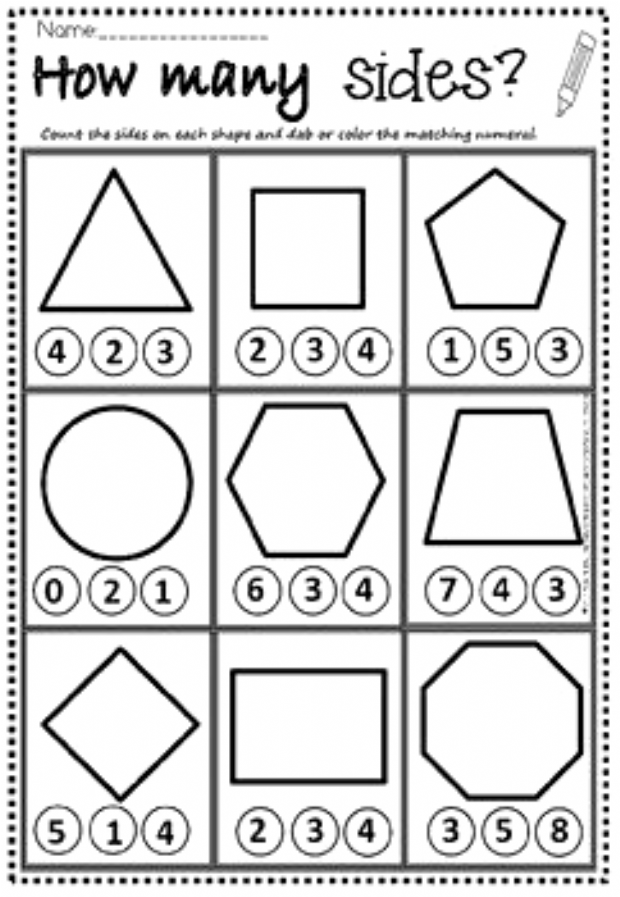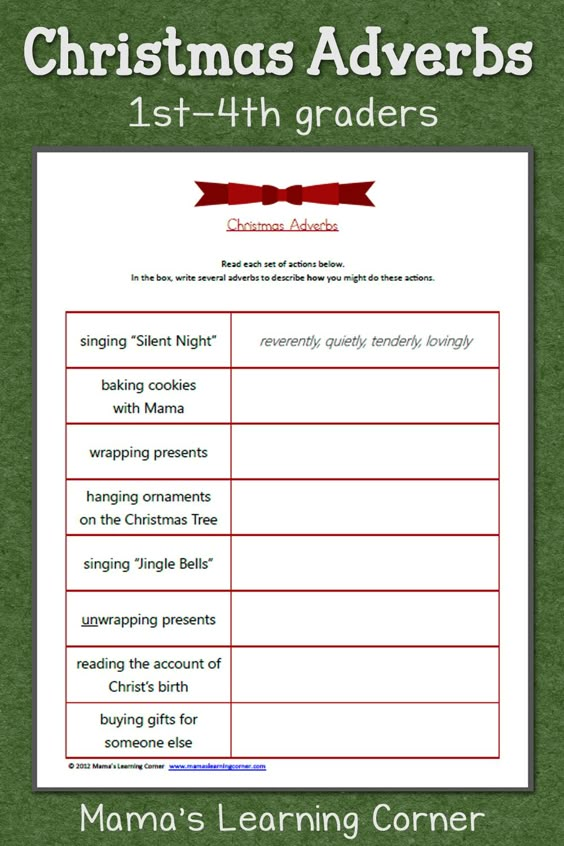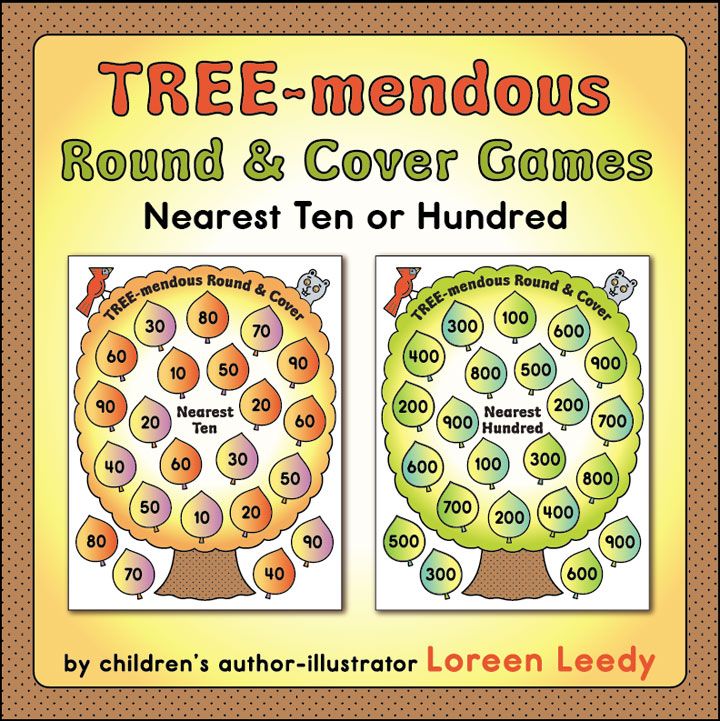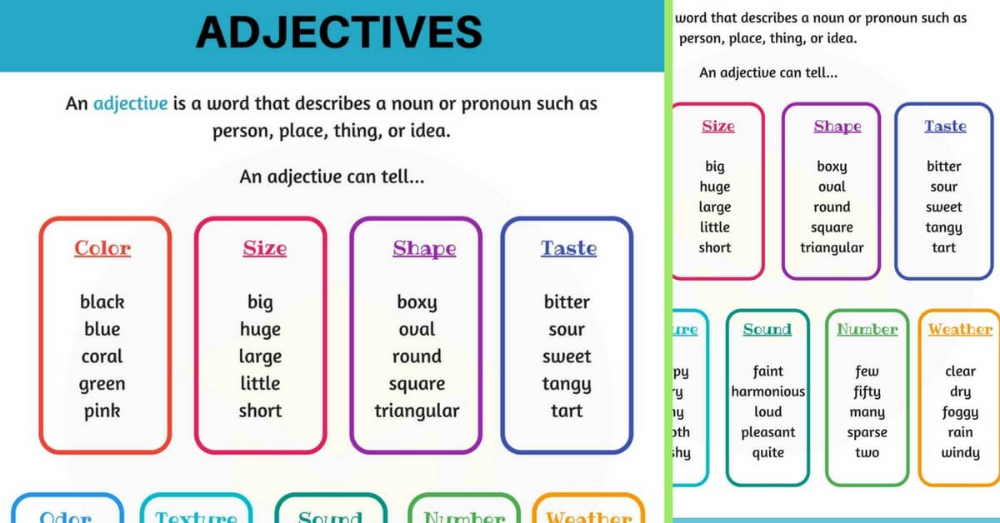Help children with writing
Helping Young Children Develop Strong Writing Skills
On this page
- Why is writing important?
- What Can You Do?
- Ideas for Parents: How to Help Your Child Become a Stronger Writer
Note: This article was adapted from two articles written by the U.S. Department of Education and was compiled by Colorín Colorado.
Writing is an important part of our daily lives. It is, however, a difficult skill to learn and master. By getting a head start with some simple activities, you can help your child begin to develop her writing skills at an early age. By doing so you will be contributing to her future success as a student and as an adult while teaching her how to express herself.
In this article, we provide some reasons that writing is an important skill for people of all ages, as well as a list of suggestions that will help your child become a stronger writer.
Why is writing important?
Writing is practical.
Every day, we need to write in order to complete our tasks, whether we are filling out a form at the doctor's office or writing an important letter. These tasks require us to write clearly, and organize information effectively.
Writing is an important element of a student's education.
Whether students are writing by hand or on the computer, many assignments and exams require students to write short answers or longer essays as a way of assessing what they have learned. As students get older, they will be expected to show more sophisticated writing skills, and to complete more sophisticated tasks through their writing. In addition, many colleges and universities require students to write essays as part of their admissions application.
Writing can be an important element of an employee's job.
Employees in many kinds of jobs are required to write on a daily basis. Perhaps they are taking phone messages and doing administrative work, or writing research reports and newspaper articles. Whatever the task, their ability to do their job well may depend on their ability to write. Many job applicants also must submit a resumé and a letter of application when applying to a new job.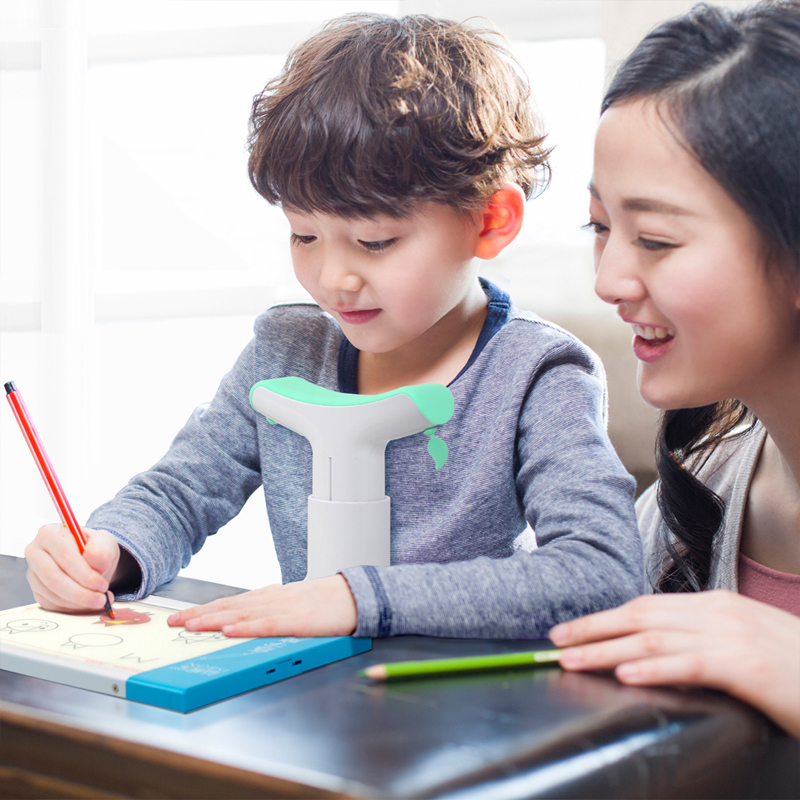
Writing is an important form of communication.
Writing letters and emails is a common way of keeping in touch with our friends, relatives, and professional colleagues. Writing is frequently the final stage in communication when we want to leave no room for doubt, which is why we write and sign contracts, leases, and treaties when we make important decisions.
Writing can be an important outlet.
Many people find writing to be therapeutic, and a helpful way to express feelings that cannot be expressed so easily by speaking.
What Can You Do?
It's important to remember that writing can be as difficult a subject to teach and assess as it is to learn. Many students have trouble writing with clarity, coherence, and organization, and this can discourage them from writing if they feel frustrated.
That's where parent involvement can make a big difference. Encouraging your child to develop strong writing skills at a young age, and to become a better writer as she gets older, can have a lifelong positive impact on her writing, and may make writing an easier and more enjoyable process for her
To get you started, the Department of Education offers a number of ideas of things you can do help your child become a stronger writer. While many of these ideas apply to younger children, they can be adapted for older children as well. To learn more about ways to support your children if they continue to struggle with writing in middle and high school, read Tips for Parents of Struggling Adolescent Writers.
While many of these ideas apply to younger children, they can be adapted for older children as well. To learn more about ways to support your children if they continue to struggle with writing in middle and high school, read Tips for Parents of Struggling Adolescent Writers.
Ideas for Parents: How to Help Your Child Become a Stronger Writer
What You Need
- Pencils, crayons, or markers
- Yarn or ribbon
- Writing paper or notebook
- Cardboard or heavy paper
- Construction paper
- Safety scissors
Before getting started
Provide a place
It's important for your child to have a good place to write, such as a desk or table with a smooth, flat surface. It's also crucial to have good lighting.
Provide the materials
Provide plenty of paper (lined and unlined) and things to write with, including pencils, pens, and crayons.
Brainstorm
Talk with your child as much as possible about her ideas and impressions, and encourage her to describe people and events to you.
Activities for young children
Encourage the child to draw and to discuss her drawings
Ask your child questions about her drawings such as:
"What is the boy doing?"
"Does the house look like ours?"
"Can you tell a story about this picture?"
Show an interest in, and ask questions about, the things your child says, draws, and may try to write.
Ask your child to tell you simple stories as you write them down
Copy the story as your child tells it, without making changes. Ask her to clarify anything you don't understand.
Encourage your child to write her name
Practice writing her name with her, and point out the letters in her name when you see them in other places (on signs, in stores, etc.). She may start by only writing the first few letters of her name, but soon the rest will follow.
Use games
There are numerous games and puzzles that help children with spelling while increasing their vocabulary.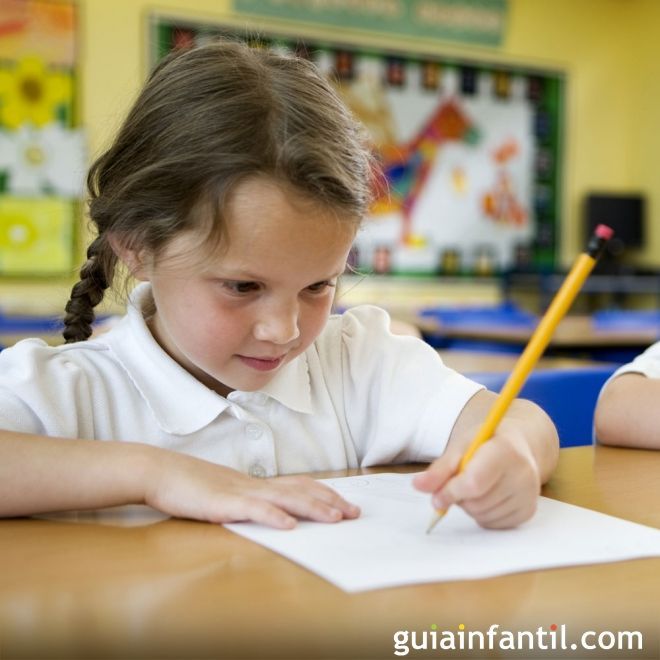 Some of these may include crossword puzzles, word games, anagrams, and cryptograms designed especially for children. Flash cards are fun to use too, and they're easy to make at home.
Some of these may include crossword puzzles, word games, anagrams, and cryptograms designed especially for children. Flash cards are fun to use too, and they're easy to make at home.
Turn your child's writing into books
Paste her drawings and writings on pieces of construction paper. For each book, make a cover out of heavier paper or cardboard, and add special art, a title, and her name as author. Punch holes in the pages and cover, and bind the book together with yarn or ribbon.
Day-to-Day Activities
Make sure your child sees you writing
She will learn about writing by watching you write. Talk with her about your writing so that she begins to understand why writing is important and the many ways it can be used.
Encourage your child to write, even if she's scribbling
Give your child opportunities to practice writing by helping her sign birthday cards, write stories, and make lists.
As your child gets older, write together
Have your child help you with the writing you do, including writing letters, shopping lists, and messages.
Suggest note-taking
Encourage your child to take notes on trips or outings, and to describe what she saw. This could include a description of nature walks, a boat ride, a car trip, or other events that lend themselves to note-taking.
Encourage copying
If your child likes a particular song, suggest that she learn the words by writing them down. Also encourage copying favorite poems or quotations from books and plays.
Encourage your child to read her stories out loud
As your child gets older, ask her to share her stories with you. Listen carefully without interrupting, and give her positive feedback about her ideas and her writing!
Hang a family message board in the kitchen
Offer to write notes there for your child. Be sure that she finds notes left there for her.
Be sure that she finds notes left there for her.
Help your child write letters and emails to relatives and friends
These may include thank you notes or just a special note to say hello. Be sure to send your child a letter or card once in awhile too so that she is reminded of how special it is to get a letter in the mail. Consider finding a pen pal for your child.
Encourage keeping a journal
This is excellent writing practice as well as a good outlet for venting feelings. Encourage your child to write about things that happen at home and school, about people she likes or dislikes and why, and about things she wants to remember and do. If she wants to share the journal with you, read the entries and discuss them together.
Things to remember
Allow time
Help your child spend time thinking about a writing project or exercise. Good writers often spend a lot of time thinking, preparing, and researching before starting to write.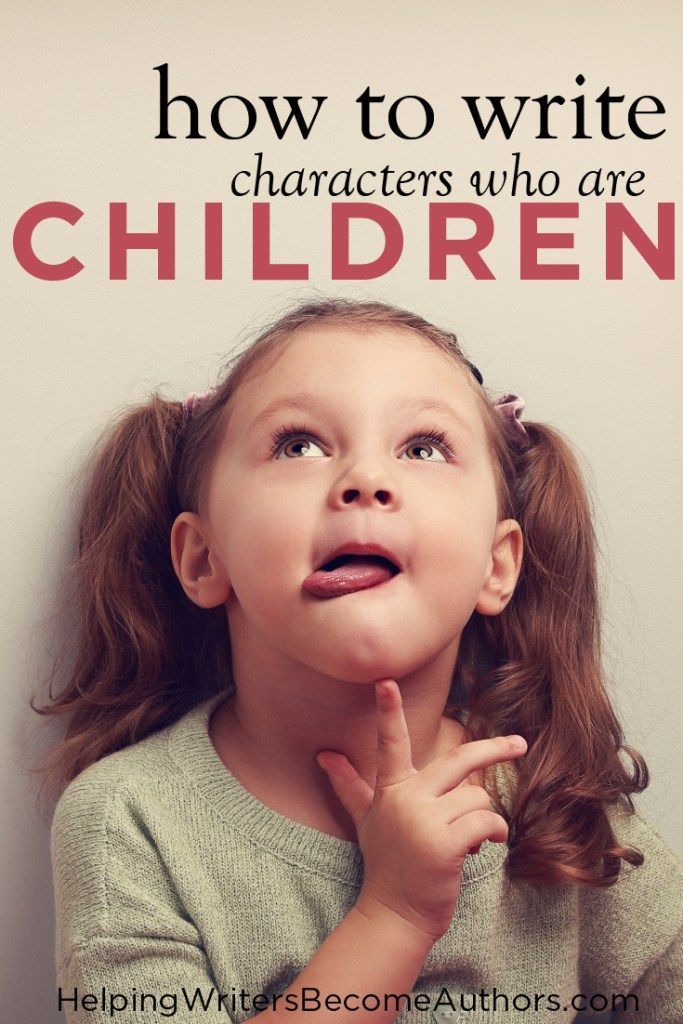 Your child may dawdle, sharpen a pencil, get papers ready, or look up the spelling of a word. Be patient — this may all be part of her preparation.
Your child may dawdle, sharpen a pencil, get papers ready, or look up the spelling of a word. Be patient — this may all be part of her preparation.
Respond to your child's writing
Respond to the ideas your child expresses verbally or in writing. Make it clear that you are interested in what the writing conveys, which means focusing on "what" the child has written rather than "how" it was written. It's usually wise to ignore minor errors, particularly at the stage when your child is just getting ideas together.
Praise your child's writing
Take a positive approach and find good things to say about your child's writing. Is it accurate? Descriptive? Original? Creative? Thoughtful? Interesting?
Avoid writing for your child
Don't write a paper for your child that will be turned in as her work, and don't rewrite your child's work. Meeting a writing deadline, taking responsibility for the finished product, and feeling ownership of it are also important parts of the writing process.
Help your child with her writing as she gets older
Ask your child questions that will help her clarify the details of her stories and assignments as they get longer, and help her organize her thoughts. Talk about the objective of what she is writing.
Provide your child with spelling help when she's ready for it
When your child is just learning how to read and write, she may try different ways to write and spell. Our job is to encourage our children's writing so they will enjoy putting their thoughts and ideas on paper. At first, your child may begin to write words the way that she hears them. For example, she might write "haf" instead of "have", "frn" instead of "friend", and "Frd" instead of "Fred." This actually is a positive step in developing her phonemic awareness. Keep practicing with her, and model the correct spelling of words when you write. As your child gets older and begins to ask more questions about letters and spelling, provide her with the help she needs.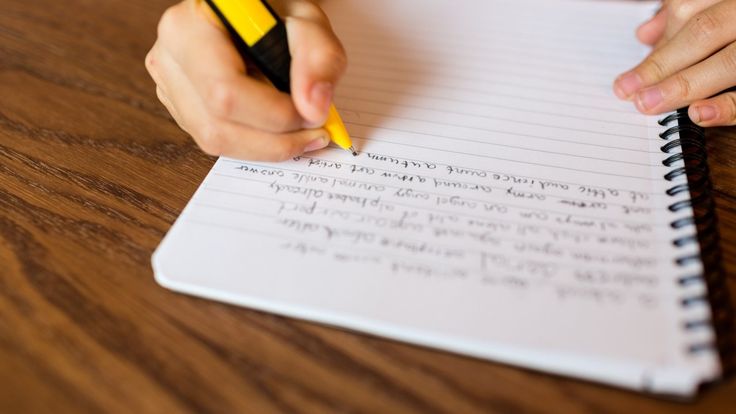
Practice, practice, practice
Writing well takes lots of practice, so make sure your child doesn't get discouraged too easily. It's not easy! Give her plenty of opportunities to practice so that she has the opportunity to improve.
Read together
Reading and writing support each other. The more your child does of each, the better she will be at both. Reading can also stimulate your child to write about her own family or school life. If your child has a particular favorite story or author, ask her why she thinks that story or that person's writing is special.
As you read and write more with your child, you will be building an important foundation, and taking steps that will help your child to become a better reader, writer, and student. Your efforts now will make a difference — and it may be just the difference that your child needs to succeed!
References
U.S. Department of Education. Office of Educational Research and Improvement, Archived Information.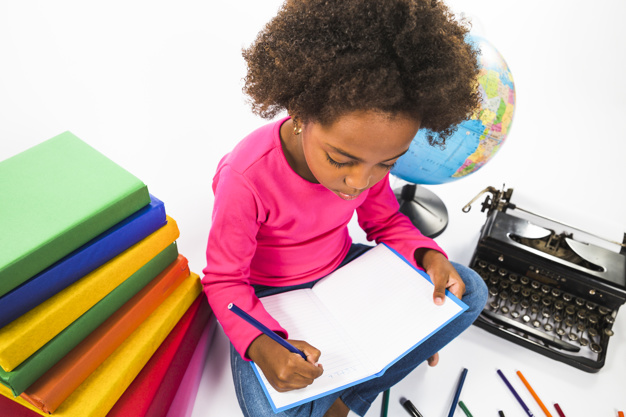 "Help Your Child Learn to Write Well." http://www.ed.gov/pubs/parents/Writing/index.html.
"Help Your Child Learn to Write Well." http://www.ed.gov/pubs/parents/Writing/index.html.
U.S. Department of Education. Parent Section: Helping Your Child Become a Reader. "Write On!" http://www.ed.gov/parents/academic/help/reader/part5.html#write.
Reprints
You are welcome to print copies or republish materials for non-commercial use as long as credit is given to Colorín Colorado and the author(s). For commercial use, please contact [email protected].
Major support provided by our founding partner, the American Federation of Teachers, AFL-CIO.
With generous support provided by the National Education Association.
ADVERTISEMENT
Most Popular
Language Objectives: The Key to Effective Content Area Instruction for English Learners
8 Strategies for Building Relationships with ELLs
Supporting ELLs in the Mainstream Classroom: 12 Strategies for Language Instruction
Using Cognates to Develop Comprehension in English
Tweets by @ColorinColorado
7 Great Ways to Encourage Your Child's Writing
By: Amanda Morin, Understood
1.
 Write a “Convince Me!” letter
Write a “Convince Me!” letterWriting isn’t just about telling stories or reporting on books. There are many ways your child can use words, including trying to convince others to agree with her. You can help her practice this type of writing by letting her argue with you—in writing!
Choose a topic you don’t agree on, such as allowance or bedtime. Have your child write you a letter trying to convince you to change your mind. The catch? She has to use facts, quotes and logic to back up her argument.
2. Play a game with pictures
Photos and images are great story sparkers. Do a web search and find a few interesting images. Or cut out pictures from magazines. The pictures can be realistic, such as a photo of students on a playground. Or they can be fantastical images, such as a superhero flying in space.
Glue a couple images into a notebook. Then ask your child to write about one of them. You can prompt her, asking her to include what she sees, what the people are thinking, what will happen next—or just let her imagination run free.
3. Play “Tell Me How”
In this activity your child pretends she’s writing to a space alien who doesn’t know anything about our culture. This alien does everything exactly as it’s said or written.
Your child’s job is to choose an everyday task, like brushing her teeth or making a sandwich. Then, she needs to write step-by-step directions about how to do the task for the alien. When she’s done, you get to be the alien and try to follow the steps exactly as she wrote them. She may be surprised at what she left out!
4. Make an “I Can” book
As your child learns to write, she’ll also be learning other new skills. Making an “I Can” book will let her practice writing skills and keep track of her other accomplishments. Staple together a bunch of blank sheets of paper to make a book. As your child reaches a new milestone, such as learning to tie her shoes or hit a baseball, she can draw a picture on a new page of the book. Younger kids can then write, “I can tie my shoes.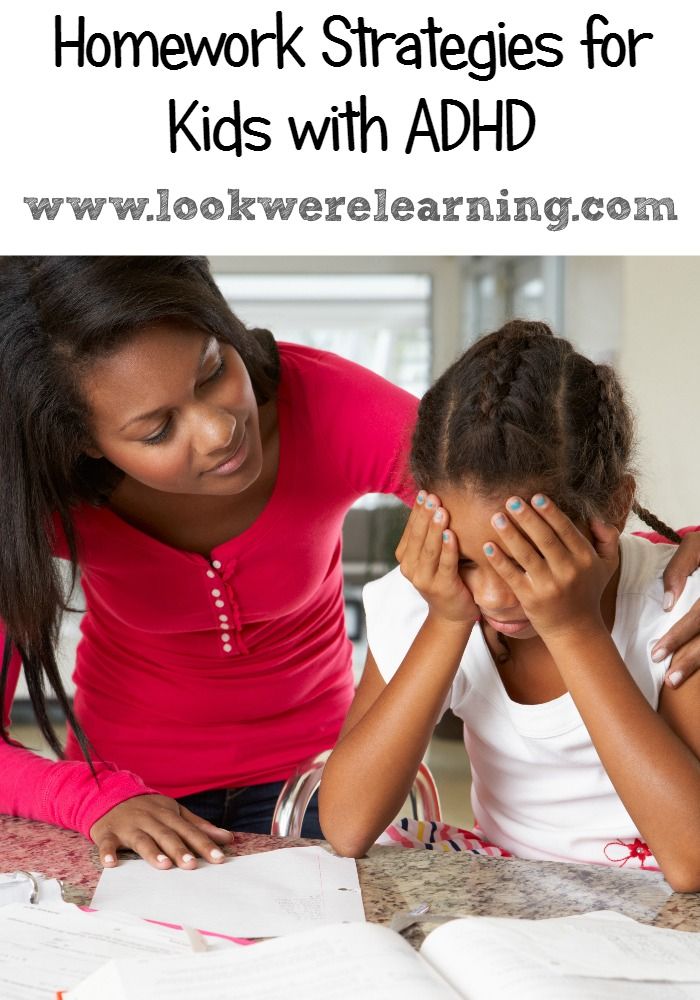 ” Older kids can write a few sentences about what they’ve accomplished.
” Older kids can write a few sentences about what they’ve accomplished.
5. Play “Fortunately/Unfortunately”
This turn-taking writing game is based on a classic kids’ book by Remy Charlip called Fortunately. In it, something lucky happens and then something unlucky happens. Each event is introduced by either the word “fortunately” or the word “unfortunately.”
To play, take a piece of paper and write a sentence beginning with “Fortunately,” such as “Fortunately it was a sunny day. I wanted to play outside.” Pass the paper to the next player, who will add an “unfortunately” sentence, such as “Unfortunately, I had to clean my room.” Keep going until the story is too silly to continue.
6. Make a journal jar
A journal doesn’t have to be a diary. It can also be a book where your child writes about ideas or answers questions, like “If you could do anything next summer, what would you choose?” A journal jar is a place to keep all those ideas and questions.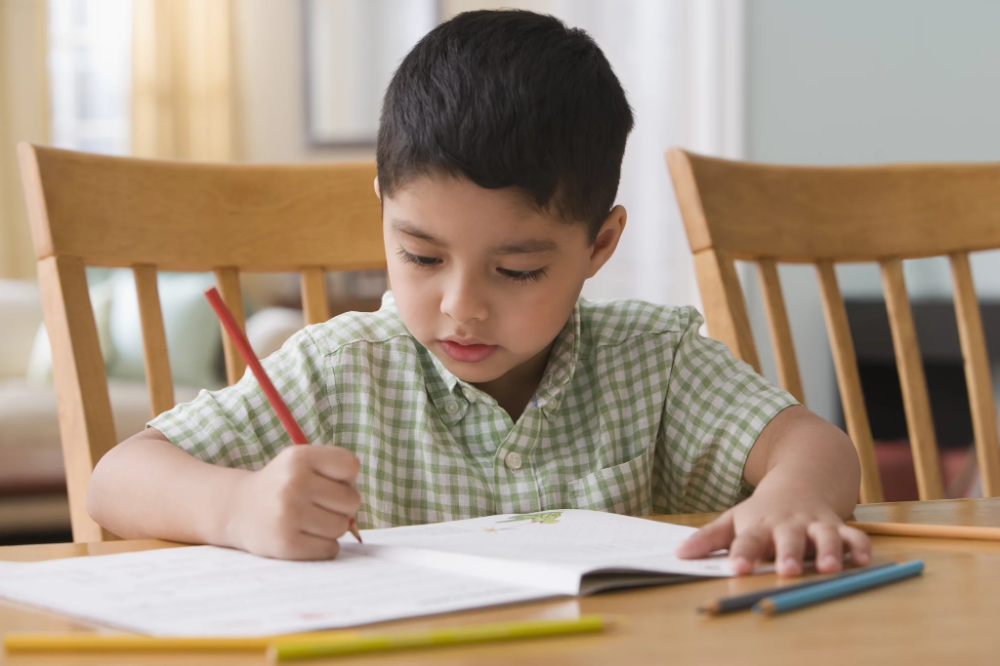
Wash and decorate a wide-mouthed jar, like one that used to contain peanut butter. Then, write or print out journal prompts on slips of paper. Ask your child to pull out one prompt each day and write about it in her journal.
7. Create a family scrapbook
A family scrapbook is a great way to save memories and jump-start your child’s writing. Use an inexpensive photo album to keep souvenirs of things you do together. This can include photos, ticket stubs, and found objects, like pretty leaves.
Your child can begin by writing the date and a line about where you were and what you did. Then, you can work together to write a more detailed summary. Don’t forget to include funny or even annoying moments!
Watch as an expert shares more tips for encouraging your child’s writing, including using dictation (speech-to-text) technology:
This special edition of Growing Readers was created by Understood, a free online resource for parents of children with learning and attention issues. This article originally appeared on Understood.org.
reasons, correction, how to help a child
The problem of writing disorders in schoolchildren is very relevant, because it is writing and reading that become the basis and means for further learning. What should parents do if the child's written language develops with difficulty? Advice is given by an experienced specialist.
Viktoriya Bunina
No child can learn to read and write absolutely correctly all of a sudden. All children go through a stage of initial learning, in which they have more or less errors that are natural. But in some children, these errors disappear at a certain stage of mastering written speech, while in others they do not.
Some parents and teachers consider these mistakes to be ridiculous and attribute them to the personal qualities of the students: inability to listen to the teacher's explanation, inattention when writing, careless attitude to work, etc. In fact, these mistakes may be based on more serious reasons.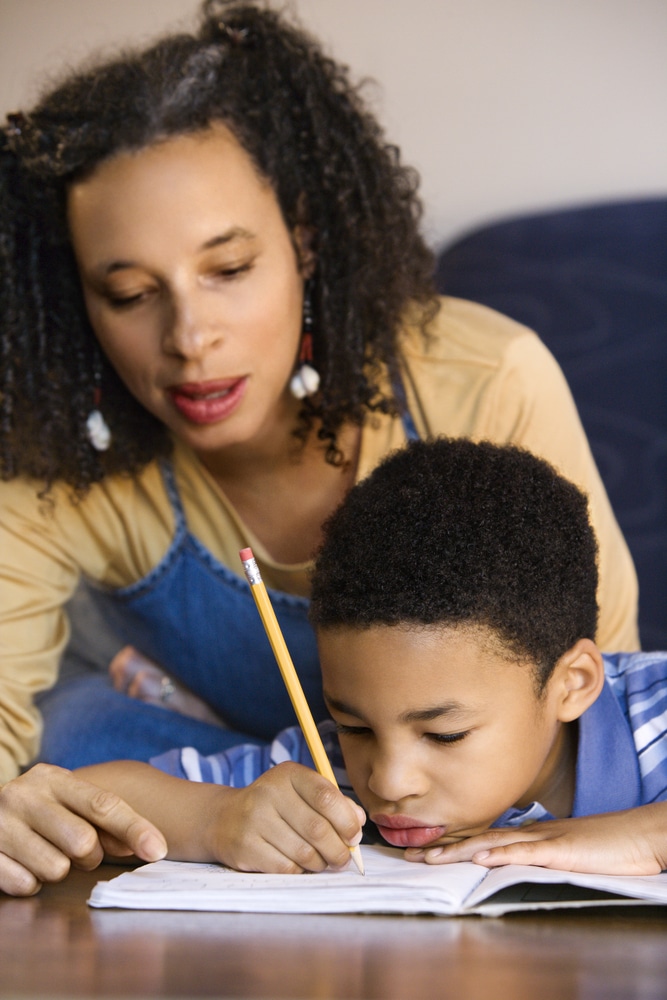
Scientists have found that a child with normal hearing, vision and intelligence can write illiterate due to the immaturity of some parts of the brain responsible for the motor functions of the hands, speech attention, visual-spatial orientation.
If the child makes mistakes
If at the end of the first - beginning of the second grade the child still makes a lot of mistakes in writing, then you need to make sure that these mistakes are not a manifestation of dysgraphia.
Dysgraphia is a partial writing disorder that manifests itself in persistent, repetitive specific errors.
How can one distinguish between dysgraphic errors and “growth” errors that naturally occur in children when mastering writing?
Errors in dysgraphia are similar in appearance to errors encountered in the process of mastering written language. However, in dysgraphia, these errors are more numerous, repetitive, and persist for a long time. Dysgraphic errors are not regulated by the application of spelling rules.
Let's list the most common dysgraphic errors.
- Word structure distortion
Skipping and rearranging letters or syllables ( krova instead of cow, onko instead of window ). Insertion of extra letters or syllables ( tarawa instead of grass ).
- Mixing of letters denoting sounds similar in pronunciation
These are the vowels o - e, o - y ( roche instead of creek , lebit instead of loves ). Consonants such as d - t, s - s, w - w, b - n ( honey instead of sweeps , dog instead of dog, bird cherry instead of bird cherry ).
- Mixing letters similar in spelling
A child with writing dysgraphia often confuses the letters b - d, t - n, and - y , etc. ( squirrel - deal, stashil - in a hurry, paik - spider).
( squirrel - deal, stashil - in a hurry, paik - spider).
- Word boundary mismatch
The child writes words together or divides the word into parts, shifts the boundaries of the word (it's snowing, all the children; on the steps, to ormit). You can often see mistakes when writing words with prepositions ( The light was on in the house. Petya goes to school ).
- Non-compliance with supply limits
Lack of signs indicating the end of the sentence ( Winter has come, snow is falling guys went out into the yard ). The beginning of a sentence is not marked with a capital letter ( the sun shone brightly that day. it was warm ).
- Agrammatisms in writing
(a lot of pencils, on branches).
The handwriting of children with writing disorders is often uneven and illegible.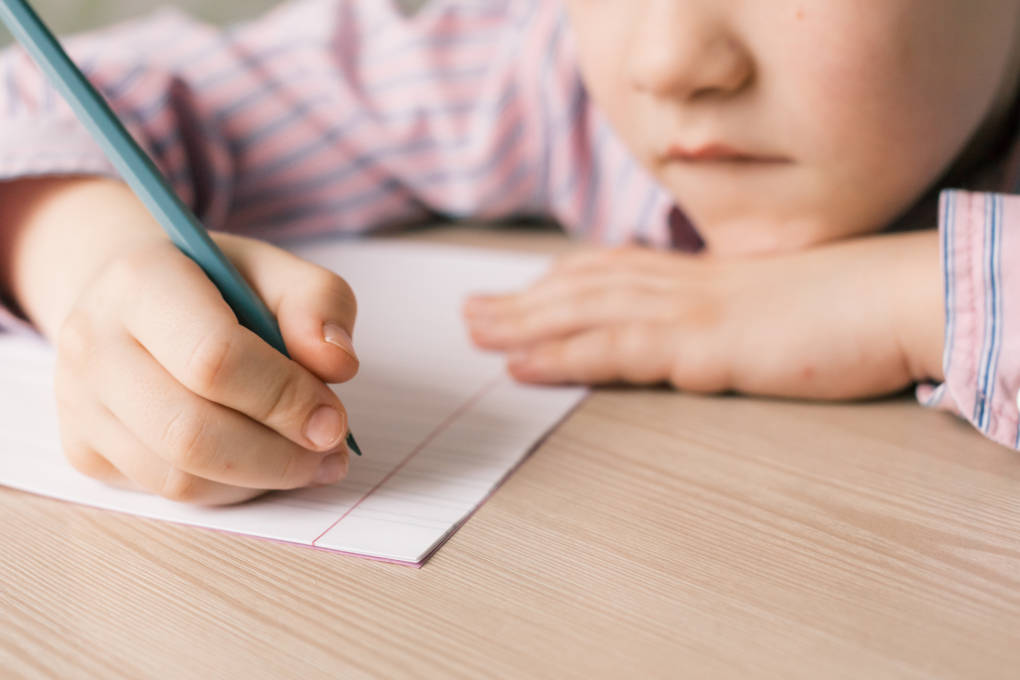 The child writes slowly, while showing a lot of effort.
The child writes slowly, while showing a lot of effort.
Written speech is not only writing, but also reading. That is why dysgraphia is usually not alone for a child. Most often, her companion is dyslexia (reading disorder).
Reading in a child with dyslexia is extremely slow and often guessing. With dyslexia, peculiar errors are observed during reading: permutations and mixing of letters that are similar in outline, omissions of lines. Often the child does not understand the meaning of what is read.
The problem of writing disorders in schoolchildren is very relevant, because it is writing and reading that become the basis and means for further education. A student who reads well, who is able to perceive other people's thoughts expressed in oral and written speech, who is able to quickly and correctly write down what he has read or heard, acquires knowledge in all subjects more easily.
Easier to prevent
Elimination of dysgraphia and dyslexia is most successful when they start early, and prevention is an even more effective measure to prevent their development. Therefore, the need to introduce preventive work to prevent reading and writing errors in preschool age is obvious. The beginnings of a violation of written speech can be detected already at a younger preschool age. Particular attention should be paid to children whose relatives suffer from dysgraphia and dyslexia, as well as children with various speech disorders.
Therefore, the need to introduce preventive work to prevent reading and writing errors in preschool age is obvious. The beginnings of a violation of written speech can be detected already at a younger preschool age. Particular attention should be paid to children whose relatives suffer from dysgraphia and dyslexia, as well as children with various speech disorders.
That is why it is recommended to have your child seen by a speech therapist every year, starting from birth. A competent specialist will carefully observe at what age the child began to babble, babble, pronounce the first words and phrases, how his sound pronunciation is formed and whether his speech development as a whole corresponds to the age norm. The speech therapist will pay attention to how the child develops other mental functions that take an active part in speech development, how large and fine motor skills are formed.
What should parents do if their child's written language develops with difficulty?
Don't wait for the impairment to go away on its own, look for a qualified speech pathologist who has experience working with children with writing disabilities. A competent speech therapist knows not only the intricacies of the Russian language, but also understands the mechanisms of writing and reading, understands what happens in the student's head when he writes and reads.
A competent speech therapist knows not only the intricacies of the Russian language, but also understands the mechanisms of writing and reading, understands what happens in the student's head when he writes and reads.
You should also consult a neurologist or psychoneurologist, who will recommend medications that improve memory and brain metabolism.
Violation of written language is not a sentence. If you notice this problem in time and take timely measures, then dysgraphia can be corrected. The process is not fast. It may take months or even years of systematic training with specialists. The main thing is to remember that the effectiveness of remedial classes requires close cooperation between the doctor, speech therapist, teacher and parents.
Victoria Stanislavovna Bunina – speech therapist, neurorehabilitologist, Master of Psychology
Illustrations by M. Ivanova
Vinograd magazine, No. 5 (67), September-October 2015
Since you are here.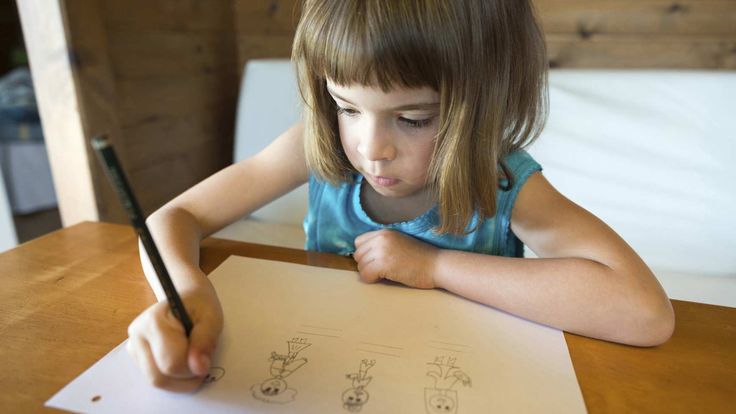 ..
..
We have a small request. This story was told thanks to the support of readers. Even the smallest monthly donation helps editorial work and create important content for people.
Your help is needed now more than ever.
How to help your child write words correctly
Writing is a very complex process in which several higher mental functions are involved at once:
● First you need to mentally divide the word into sounds;
● You need to remember which letter corresponds to a particular sound;
● conjure up the image of a letter, that is, remember how it is written;
● The brain gives a command to the hand;
● apply the appropriate rule, and part of the spelling is based on the selection of a test word, that is, the memory is again included in the work.
If at some stage a failure occurs, then the child begins to write with errors, despite all the efforts of teachers and parents.
Errors in writing are divided into specific speech therapy and errors into learned and unlearned rules of the Russian language.
Dysgraphia is a partial violation of written speech caused by the lack of formation of higher mental functions. The child will repeat the same mistakes, even if he learns all the rules of the Russian language. He simply cannot apply them where necessary. According to a rough estimate, dysgraphia in one way or another is observed in almost a third of primary school students.
Not all schoolchildren, especially younger ones, clearly understand why they need literacy. Therefore, the parent should explain why it is important to write without errors. For example, a literate person makes a good impression on others, people have more confidence in his professional qualities, etc. Good motivation will allow the child to be more attentive in class and learn the rules more diligently. And the result will not be long in coming.
Check homework
To notice the mistake in time and work it out at home, check your homework. It is useful for the child to verbally formulate answers and explain by what rule he wrote this or that spelling. So the student will be able to notice mistakes and memorize the theory faster.
It is useful for the child to verbally formulate answers and explain by what rule he wrote this or that spelling. So the student will be able to notice mistakes and memorize the theory faster.
Get your child interested in reading
People have long understood that reading books improves literacy. For the development of literacy, scientists advise schoolchildren to read, first of all, classical literature. Therefore, make sure that the child does not ignore the reading of works of art according to the school curriculum and does not forget about books on weekends or during holidays.
Teach the student to understand the rules
We emphasize: I did not crammed, but taught with understanding. When reading the rules, it is important to memorize a clear algorithm why a certain word is written according to one paragraph of the rule, and the second word is written differently.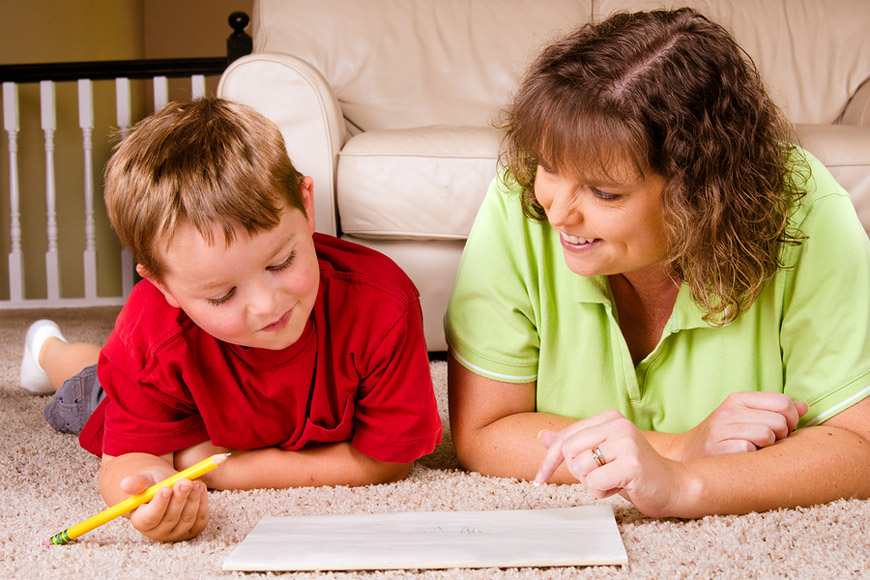 For this, the parent does not have to be a teacher. It is enough to take an example from the rule and disassemble it step by step, as is done in the explanation. Suppose it is difficult for a child to remember why it is necessary to write the letter O in the word “mountain”. To do this, the word must be checked by choosing a single root for it or putting it in another form so that the emphasis falls on O.
For this, the parent does not have to be a teacher. It is enough to take an example from the rule and disassemble it step by step, as is done in the explanation. Suppose it is difficult for a child to remember why it is necessary to write the letter O in the word “mountain”. To do this, the word must be checked by choosing a single root for it or putting it in another form so that the emphasis falls on O.
Write dictations at home
It is not necessary to force a child to write poems every day. It is enough to dictate 3-5 sentences a day and parse the words in which mistakes were made. Even such a half-hour practice trains literacy well. Of course, it is better to dictate not just any text, but one oriented specifically to the age of your child.
Dictation is a terrible word for many schoolchildren. It would seem that it can be difficult to write a dictation. It turns out that this little word hides probably the most difficult and frequently used type of literacy test for our students.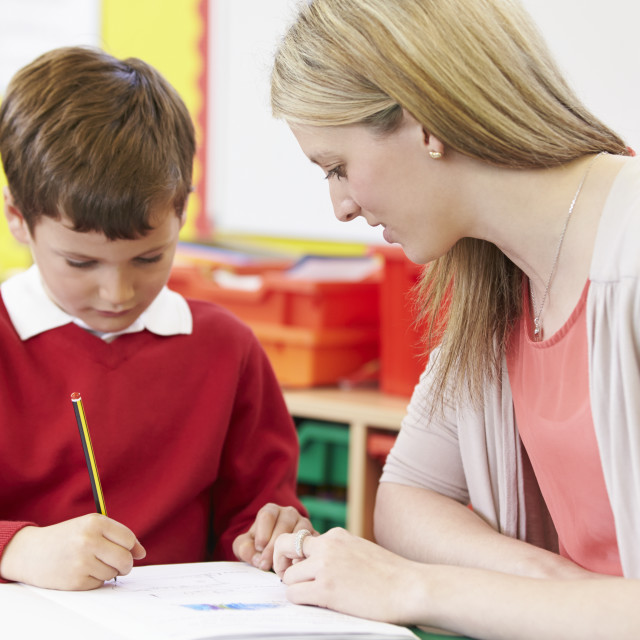
Dictation is not the most pleasant job, but you can't do without it. Starting from the first grade, schoolchildren write dictations. First alphabetic, then syllabic, and then many different types of dictations appear: selective, explanatory, educational, and control.
How to prepare a child for dictation and help him cope with the fear of this work? Unfortunately, it is impossible to prepare for the dictation in one day. Any dictation is the result of long work and training. Therefore, if you want your child to write dictations correctly, you need to prepare for long work. But don't worry. The wolf is not as scary as it seems. The work, of course, will be long, but not very difficult.
Regular reading of fiction
To begin with, it should be noted that the more a child reads, the better he copes with this type of work. Therefore, it is necessary to start preparing for dictations by reading books. There are many different exercises that develop the spelling vigilance of a person, i. e. the ability to notice and remember how a word is spelled. A person with spelling vigilance writes words correctly, without thinking about the rules of the language, automatically. At the same time, visual memory is also of great importance, which can also be successfully developed by various game exercises.
e. the ability to notice and remember how a word is spelled. A person with spelling vigilance writes words correctly, without thinking about the rules of the language, automatically. At the same time, visual memory is also of great importance, which can also be successfully developed by various game exercises.
The skill of writing under dictation must be developed and consolidated. And for this you need to write small dictations yourself at home more often. At the same time, it is not at all necessary to buy special collections of dictations; you can use a Russian textbook. Choose an exercise that the child has not yet passed or has passed for a long time and managed to forget. And dictate, and the child writes.
Why is it convenient to use a textbook? Because it uses words for the studied spellings and sentences of a certain level of complexity. You consolidate knowledge of spelling, vocabulary words and train your child in writing a dictation.
When writing a dictation, an adult first reads the entire text so that the child has an idea of what he will write. If you do not write a text, but simply separate sentences, then we read by sentence. Then we read one sentence and start writing. At the same time, for the 1st-beginning of the 2nd grade, it is better to focus the child's attention on each word: "The first word - Has come." When the child wrote, "The next word is cold." "The next word is winter. The sentence is over." So you draw the child's attention that the words are written separately and "remind" that a period must be put at the end of the sentence. In addition, when pronouncing words for first graders, you need to say them the way they are written, and not the way we speak. We will dictate: "The cow gives milk. The raven sat on the oak."
If you do not write a text, but simply separate sentences, then we read by sentence. Then we read one sentence and start writing. At the same time, for the 1st-beginning of the 2nd grade, it is better to focus the child's attention on each word: "The first word - Has come." When the child wrote, "The next word is cold." "The next word is winter. The sentence is over." So you draw the child's attention that the words are written separately and "remind" that a period must be put at the end of the sentence. In addition, when pronouncing words for first graders, you need to say them the way they are written, and not the way we speak. We will dictate: "The cow gives milk. The raven sat on the oak."
When the child has written down all the sentences, you need to check the dictation. You dictate everything from the beginning, and the child checks each letter and word. In order for him to do this better, you can suggest that the child imagine that this is someone else's notebook and carefully check each letter.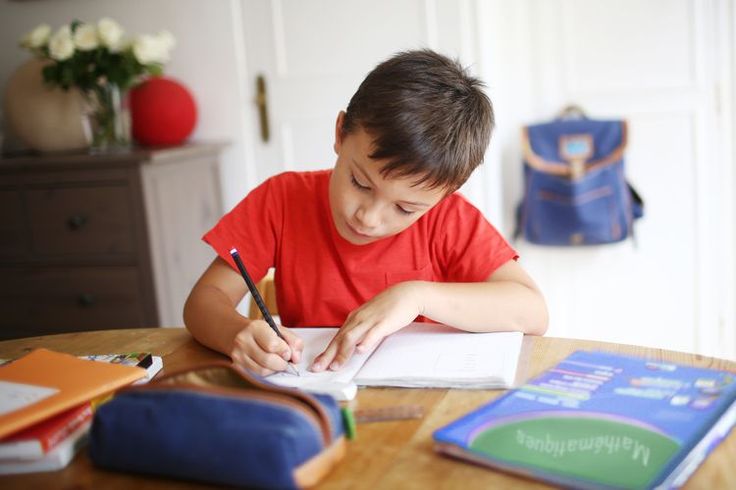
For students in grades 2-4, it is no longer necessary to separate words, but it is desirable that the child count the words when you read. If there are prepositions and conjunctions, then it should be noted that there are small helper words.
It is important that when writing a dictation, the child needs to pronounce everything that he writes. Speaking writing helps to avoid many mistakes and teaches the child to control his work. In grades 2-4, when children are already learning the rules for writing words, it is necessary that the child explain the spelling of dubious letters and orally select test words.
Perhaps now it seems to you that it is long and difficult. It can be difficult the first 2-3 times. Then the child will learn, get used to it and it will become a habit, by the way, very useful.
Try writing dictations with comments and the results will not keep you waiting.
Literature:
1.

